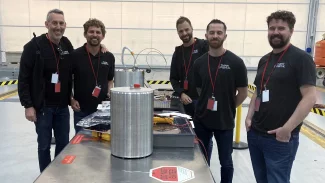fmtutil.cnf
fmtutil.cnf - configuration file for fmtutil
The fmtutil.cnf file contains the configuration information
for fmtutil(8). Each line contains the name of the format
(e.g., ``tex\'\', ``latex\'\', ``omega\'\'), the name of the engine that
is used by that format (e.g., ``tex\'\', ``etex\'\', ``omega\'\'), the pattern
file (e.g., language.dat, language.def), and any
arguments (name of an .ini file).
Fields are separated by whitespace and complete lines can be commented
out with ``#\'\'. The ``pattern file\'\' field cannot be used to
define a file that is used while building the format.
It tells fmtutil which file the
format creation procedure reads and it has an effect to the options
--showhyphen and --byhyphen.
If the format has no way to
customize hyphenation, a ``-\'\' can be used to indicate this.
The tex(1) and amstex(1) formats always load
hyphen.tex. No customization by a pattern file is available
for these formats. Therefore, the pattern-file field for the
tex and amstex is usually indicated to be empty (``-\'\').
You can, however, build customized formats on top of plain
tex(1) or amstex(1) by using bplain.tex instead of
plain.tex (b for the Babel system). See, for example,
the bplain.ini file for the bplain format).
etex(1) loads language.def, not
language.dat.
Symbolic links to the correct engines (e.g., bplain -> tex)
are generated by the texlinks(8) script. Remember to run
texlinks(8) if you run fmtutil(8) yourself, rather
than using the FORMATS option in texconfig(8).
default configuration file
hyphenation pattern file
hyphenation pattern file
amstex(1), etex(1), fmtutil(8),
tex(1), texconfig(8), texlinks(8).
Web page: <http://tug.org/teTeX/>
None known, but report any bugs found to <tetex@dbs.uni-hannover.de> (mailing list).
fmtutil.cnf was written by Thomas Esser
<te@dbs.uni-hannover.de>, and is Copyright 1998,
1999 but released into the public domain.
This manual page was written by C.M. Connelly
<c@eskimo.com>, for
the Debian GNU/Linux system. It may be used by other distributions
without contacting the author. Any mistakes or omissions in the
manual page are my fault; inquiries about or corrections to this
manual page should be directed to me (and not to the primary author).



















